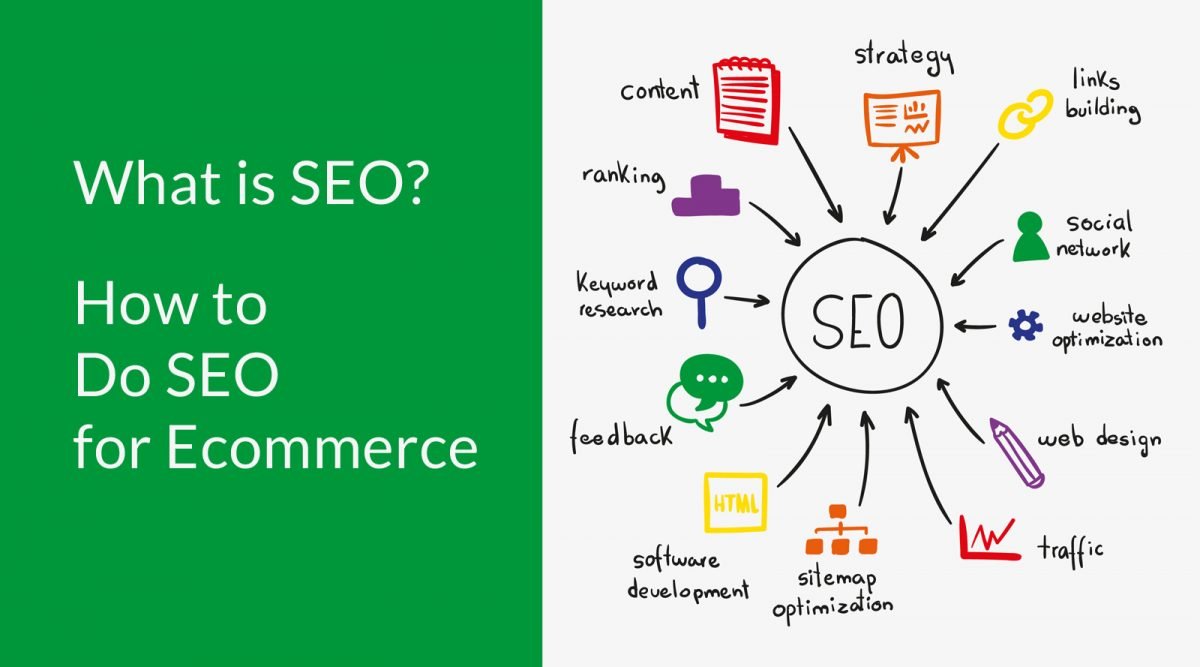The Development of SEO: From Key Phrases to User Experience in Digital Advertising And Marketing
In the ever-evolving landscape of digital advertising and marketing, the journey of search engine optimization from its keyword-centric origins to the current emphasis on user experience notes a notable improvement. As internet search engine fine-tune their formulas to focus on user fulfillment, electronic marketing experts find themselves navigating a surface where recognizing intent, optimizing for mobile, taking advantage of social signals, and adjusting to voice search and AI have ended up being important. This change signifies greater than just an adjustment in tactics; it shows a basic reimagining of just how brands get in touch with their target markets in the digital world, signifying a brand-new era in SEO technique that surpasses simple keywords.
The Increase of User-Centric Web Content
Amidst the ever-evolving landscape of electronic advertising methods, the focus on user-centric web content has actually emerged as a pivotal aspect in improving on the internet exposure and interaction. In the world of Seo (SEO), the focus has shifted from merely incorporating key words to creating important content that resonates with the target market. User-centric web content is crafted with the target market's requirements, preferences, and behaviors in mind, intending to give significant and relevant information.
By focusing on user-centric material, companies can develop a more powerful connection with their target audience, causing increased trust fund and reputation. This technique not only boosts the general user experience yet also favorably affects online search engine positions. Browse algorithms, such as Google's, currently place considerable importance on variables like material quality, significance, and engagement metrics, making user-centric material a fundamental element of any effective SEO method.
Basically, the surge of user-centric content symbolizes a paradigm shift in electronic advertising, where the emphasis is on building connections and supplying value to individuals instead than solely satisfying online search engine. This shift highlights the relevance of creating material that resolves the needs and rate of interests of the target market, inevitably driving organic web traffic and promoting lasting customer connections.
Value of Intent-Based Optimization
The advancement of digital advertising methods in the direction of user-centric content has paved the method for a substantial emphasis on Intent-Based Optimization in Seo (SEARCH ENGINE OPTIMIZATION) Recognizing customer intent is important in producing web content that aligns with what users are looking for online. Intent-Based Optimization concentrates on supplying content that satisfies the certain demands and purposes of customers, as opposed to just targeting key phrases.
By interpreting and examining customer intent, companies can tailor their material to supply beneficial details, items, or solutions that straight address what the user is looking for (Top SEO company in Singapore). This approach not only improves the relevance of the web content yet additionally boosts the general individual experience, resulting in higher interaction and conversion rates
Furthermore, online search engine like Google increasingly focus on customer contentment and significance in their formulas. Websites that effectively maximize for customer intent are most likely to rate greater in search results, driving natural web traffic and visibility. In today's affordable digital landscape, understanding Intent-Based Optimization is crucial for staying ahead in search engine optimization and meeting the advancing demands of on-line individuals.
Change Towards Mobile-Friendly Internet Sites
As the occurrence of mobile devices remains to increase, the change towards our website mobile-friendly websites has actually become imperative for organizations seeking to boost individual experience and search engine optimization performance. With even more individuals accessing the web through smart devices and tablet computers, enhancing websites for mobile has actually transitioned from being a selection to a necessity in the electronic landscape.
Mobile-friendly web sites offer a smooth surfing experience by adjusting to various screen dimensions and resolutions, guaranteeing that web content is browse around here easily available and visually appealing on all devices. Top SEO company in Singapore. Along with offering a better individual experience, mobile optimization is also critical for SEO success. Online search engine like Google prioritize mobile-friendly sites in their positions, considering aspects such as responsive layout, page packing speed, and mobile usability when identifying search engine result positions

Role of Social Signals in Search Engine Optimization
Just how do social signals influence the position of websites in online search engine outcomes? Social signals are an essential consider modern search engine optimization strategies, playing a vital role in influencing an internet site's search engine position. These signals are signs of a site's authority, appeal, and importance based upon social media sites interactions such as likes, shares, comments, and general involvement. Internet search engine consider social signals as a step of a web site's reliability and dependability, influencing its placement in search results page.

Embracing Voice Search and AI
Accepting the innovations of voice search innovation and expert system (AI) is vital for remaining ahead in the electronic advertising and marketing landscape. Voice search has actually gained significant popularity with the surge of digital aides like Siri, Alexa, and Google Aide. Enhancing web content for voice search entails recognizing all-natural language patterns and long-tail search phrases that mirror exactly how people speak. AI, on the other hand, plays a crucial role in assessing substantial quantities of data to individualize customer experiences, anticipate patterns, and automate tasks.
Final Thought
In final thought, the evolution of search engine optimization has seen a change from focusing solely on keywords to focusing on user experience in digital advertising. This shift has actually highlighted the relevance of user-centric material, intent-based optimization, mobile-friendly websites, social signals, and the assimilation of voice search and AI innovations. By adjusting to these changes, organizations can improve their on-line presence and properly reach their target audience in the ever-evolving electronic landscape.
As search engines refine their formulas to focus on individual complete satisfaction, electronic marketers discover themselves browsing a terrain where recognizing intent, optimizing for mobile, taking advantage of social signals, and adjusting to voice search and AI have come to be imperative. Comprehending customer intent is important in developing content that lines up with what users are looking for online. Look engines like Google prioritize mobile-friendly web sites in their rankings, thinking about variables such as responsive layout, web page packing rate, and mobile use when establishing search result settings.
Look engines take into consideration social signals as a measure of a site's trustworthiness and reliability, influencing its placement in search outcomes.
Websites that receive high degrees of social engagement tend to perform better in search rankings, as search engines translate these signals as signs of useful and straightforward material.